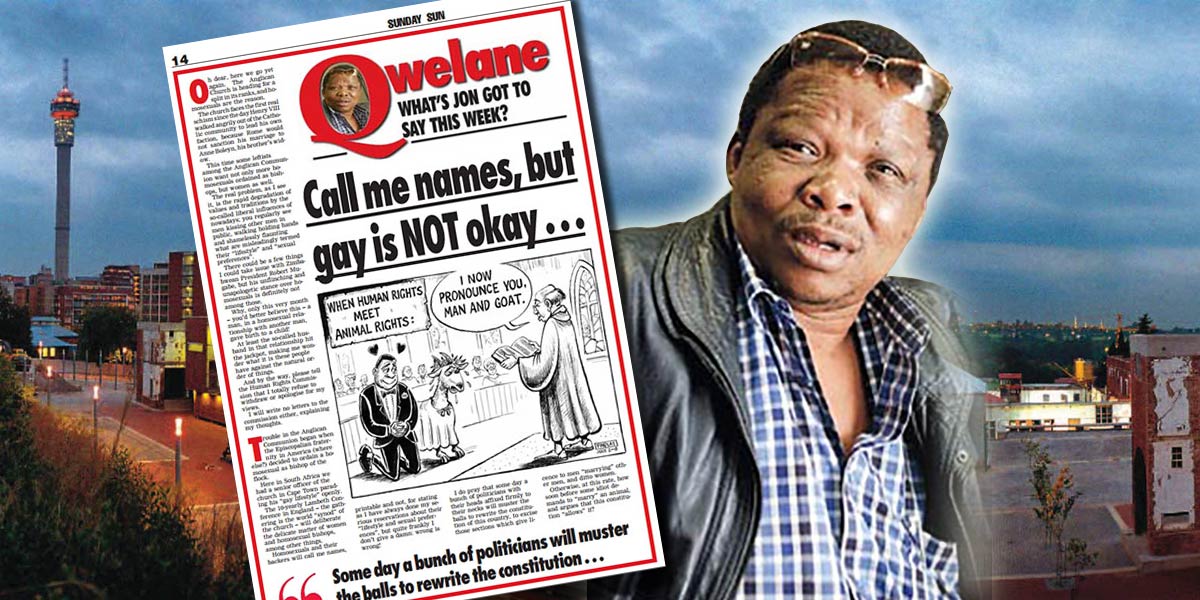Jon Qwelane decade-long hate speech case back in court

The Supreme Court of Appeal is considering Jon Qwelane’s appeal of the 2017 ruling that found him guilty of anti-gay hate speech.
The case, which has dragged on for a decade, concerns Qwelane’s infamous 2008 Sunday Sun article, Call me names, but gay is not okay.
In it, he suggested that homosexuality was similar to bestiality, said he supported former Zimbabwean President Robert Mugabe’s homophobia (which included calling gays and lesbians “worse than pigs and dogs”) and urged politicians to remove the sexual orientation equality clause from the Constitution.
A cartoon alongside the article depicted a man marrying a goat in church, further suggesting that same-sex relationships are akin to bestiality. The piece saw more than 350 complaints submitted to the SA Human Rights Commission (SAHRC).
On Tuesday, Qwelane’s lawyer, Advocate Mark Oppenheimer, told the Supreme Court of Appeal in Bloemfontein that the 2017 hate speech ruling and the Equality Act itself are unconstitutional and a violation of his right to freedom of speech.
“It is the contention of the appellant that the article is merely an expression of belief and opinion which is protected,” claims Qwelane’s submission to the court.
“In deeming the article to have infringed the provision of section 10 of the [Equality] Act has the effect of significantly constraining his rights to freedom of expression which, when one has regard to the law on this aspect, it is argued that it does not pass constitutional muster.”
Representing the SAHRC, Advocate Tembeka Ngcukaitobi said the article was hurtful to gay people and could incite hatred against them, reports the SABC.
“You must remember that speech itself can be very hurtful without producing physical harm. Speech can induce fear, speech can on its own induce immense psychological distress; often as Justice Navsa pointed out the distress can be as a result of natural disagreement between people but the problem is whether distress is as a consequence of an immutable characteristic,” argued Ngcukaitobi.
Qwelane was first found guilty of hate speech in 2011. He was ordered to apologise to the gay community and to pay damages of R100,000 towards an LGBTI rights group. That ruling was rescinded on a technicality and the case was refiled by the SAHRC.
In August 2017, the South Gauteng High Court against found Qwelane guilty of hate speech in terms of Section 10 of the Equality Act. He was ordered to apologise to the LGBTI community and that the apology be published in a national Sunday newspaper. Qwelane was also ordered to pay the costs of the other parties in the proceedings.
A decision in the appeal is expected to be issued before the end of the year.
Leave a Reply